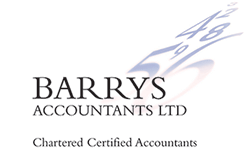New VAT penalty regime to start in January 2023
The often-criticised default surcharge regime is coming to an end, and a new system for late VAT returns and payments will be introduced from 1 January 2023. How will the migration to the new scheme be handled?

There are a number of problems with the current VAT penalty system, the default surcharge. One is that a business paying just one day late can incur a seemingly disproportionate penalty of up to 15% of the VAT amount - there is no recognition of the severity of the lateness. Additionally, because the penalty is tax-geared, it doesn’t punish persistent late filers if they pay their VAT on time. From 1 January 2023, the VAT penalty system will be modernised. Filing a VAT return late will incur a penalty point. Once a business accrues a specified number of points (four for those filing quarterly returns), a £200 penalty will be issued. Further penalties will then be charged until the points reset to zero - which will only happen after a “period of compliance”, i.e. filing all returns on time. Further information about this can be read here.
For late payments, a separate system of charges will apply. As long as the VAT is paid in full between days one and 15, no penalty will be charged. Anything outstanding the day after that will incur a 2% penalty. If any VAT is still outstanding on day 31 it will incur a further 2% charge. Further lateness will attract a penalty at 4% on an annualised basis until the debt is settled. Note. A penalty can also be avoided by agreeing a time-to-pay arrangement before day 15 ends. A first-year concession will be in place, effectively extending the no-penalty period up to day 30.
It's important to note that the new regime only applies to VAT periods starting on or after 1 January 2023. This means you may still be under the default surcharge rules for a VAT period ending on 31 January or 28 February, so make sure you pay your VAT on time if you have accrued defaults that haven’t cleared yet.
Related Topics
-
Capital gains tax break for job-related accommodation
You’re in the process of selling a property that you bought as your home but because of your job have never lived in. You’ve been told that you’ll have to pay tax on any gain you make, but might a special relief get you off the hook?
-
Should you revoke your 20-year-old option?
Your business has let out a building to a tenant and it is now just over 20 years since you opted to tax the property with HMRC. Should you revoke it so that your tenant no longer needs to pay VAT?
-
Chip shop owner fined £40k for hiring illegal worker
A Surrey fish and chip shop owner has been left in shock after being fined £40,000 for allegedly employing someone who didn’t have the right to work in the UK, even though he conducted a right to work check. Where did this employer go wrong and what can you learn from it?



 This website uses both its own and third-party cookies to analyze our services and navigation on our website in order to improve its contents (analytical purposes: measure visits and sources of web traffic). The legal basis is the consent of the user, except in the case of basic cookies, which are essential to navigate this website.
This website uses both its own and third-party cookies to analyze our services and navigation on our website in order to improve its contents (analytical purposes: measure visits and sources of web traffic). The legal basis is the consent of the user, except in the case of basic cookies, which are essential to navigate this website.